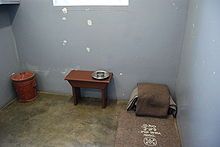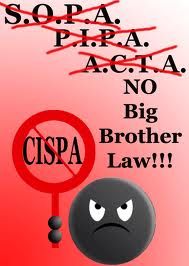“Punting the Pundits” is an Open Thread. It is a selection of editorials and opinions from around the news medium and the internet blogs. The intent is to provide a forum for your reactions and opinions, not just to the opinions presented, but to what ever you find important.
Thanks to ek hornbeck, click on the link and you can access all the past “Punting the Pundits”.
Follow us on Twitter @StarsHollowGzt
Paul Krugman: The Ignorance Caucus
Last week Eric Cantor, the House majority leader, gave what his office told us would be a major policy speech. And we should be grateful for the heads-up about the speech’s majorness. Otherwise, a read of the speech might have suggested that he was offering nothing more than a meager, warmed-over selection of stale ideas.
To be sure, Mr. Cantor tried to sound interested in serious policy discussion. But he didn’t succeed – and that was no accident. For these days his party dislikes the whole idea of applying critical thinking and evidence to policy questions. And no, that’s not a caricature: Last year the Texas G.O.P. explicitly condemned efforts to teach “critical thinking skills,” because, it said, such efforts “have the purpose of challenging the student’s fixed beliefs and undermining parental authority.”
And such is the influence of what we might call the ignorance caucus that even when giving a speech intended to demonstrate his openness to new ideas, Mr. Cantor felt obliged to give that caucus a shout-out, calling for a complete end to federal funding of social science research. Because it’s surely a waste of money seeking to understand the society we’re trying to change.
The New York Times Editorial: Quietly Killing a Consumer Watchdog
The consumer bureau has taken seriously its mandate to protect the public from the kinds of abuses that helped lead to the 2009 recession, and it has not been intimidated by the financial industry’s army of lobbyists. That’s what worries Republicans. They can’t prevent the bureau from regulating their financial supporters. Having failed to block the creation of the bureau in the 2010 Dodd-Frank financial reform bill, they are now trying to take away its power by filibuster, and they may well succeed.
The bureau cannot operate without a director. Under the Dodd-Frank law, most of its regulatory powers – particularly its authority over nonbanks like finance companies, debt collectors, payday lenders and credit agencies – can be exercised only by a director. Knowing that, Republicans used a filibuster to prevent President Obama’s nominee for director, Richard Cordray, from reaching a vote in 2011. Mr. Obama then gave Mr. Cordray a recess appointment, but a federal appeals court recently ruled in another case that the Senate was not in recess at that time because Republicans had arranged for sham sessions.
The biggest problem with the recently disclosed Obama administration white paper (pdf) defending the drone killing of radical clerk Anwar al-Awlaki isn’t its secrecy or its creative redefinition of the words “imminent threat.” It is the revolutionary and shocking transformation of the meaning of due process.
Fortunately, as seen during John Brennan’s confirmation hearing for Central Intelligence Agency director, Congress is starting to notice]. [..]
The Obama administration’s apparent belief that due process can be satisfied in secret internal inside the executive branch is arguably a greater departure from precedent. It is a travesty of the very notion of due process. And to borrow a phrase from Justice Robert Jackson, it will now lie about like a loaded weapon ready for the hand of any administration that needs it.
Sen. Bernie Sanders: A Choice For Corporate America: Are You With America Or The Cayman Islands
When the greed, recklessness, and illegal behavior on Wall Street drove this country into the deepest recession since the 1930s, the largest financial institutions in the United States took every advantage of being American. They just loved their country – and the willingness of the American people to provide them with the largest bailout in world history. In 2008, Congress approved a $700 billion gift to Wall Street. Another $16 trillion in virtually zero interest loans and other financial assistance came from the Federal Reserve. America. What a great country.
But just two years later, as soon as these giant financial institutions started making record-breaking profits again, they suddenly lost their love for their native country. At a time when the nation was suffering from a huge deficit, largely created by the recession that Wall Street caused, the major financial institutions did everything they could to avoid paying American taxes by establishing shell corporations in the Cayman Islands and other tax havens.
Robert Kuttner: The Sorry State of Our Union
President Obama delivers his fifth State of the Union Address on Tuesday. Based on White House leaks, the president will emphasize rebuilding the middle class. He will invoke the importance of education, infrastructure, clean energy, and manufacturing.
These are terrific themes, economically and politically. The only problem is that rebuilding the middle class by the public investments that the society needs is out of the question — because of the downward drag of a budget politics that the president shares.
The administration is officially committed to the idea that we need another $1.5 trillion in budget cuts over the next decade — a rate of fiscal contraction half again as large as this year’s Sequester, and for 10 full years.
Robert Reich: Coming Tuesday (Hopefully): The State of the Union’s Economy
If you’re sitting in the well of the House when a president gives a State of the Union address (as I’ve had the privilege of doing five times), the hardest part is on the knees. You’re required to stand and applaud every applause line, which means, if you’re in the cabinet or an elected official of the president’s party, an extraordinary amount of standing and sitting.
But for a president himself, the State of the Union provides a unique opportunity to focus the entire nation’s attention on the central issue you want the nation to help you take action on.
President Obama has been focusing his (and therefore America’s) attention on immigration, guns, and the environment. All are important. But in my view none of these should be the central theme of his address Tuesday evening.

 On this day in 1990,
On this day in 1990,  Mandela was imprisoned on
Mandela was imprisoned on  You know that dress or shirt that’s been hanging in your closet for years, you know that hideous shade of fuscia that was a fashion must have for barely a season but you had to buy it, well, there are some bills in Congress that are just like that, the
You know that dress or shirt that’s been hanging in your closet for years, you know that hideous shade of fuscia that was a fashion must have for barely a season but you had to buy it, well, there are some bills in Congress that are just like that, the
Recent Comments